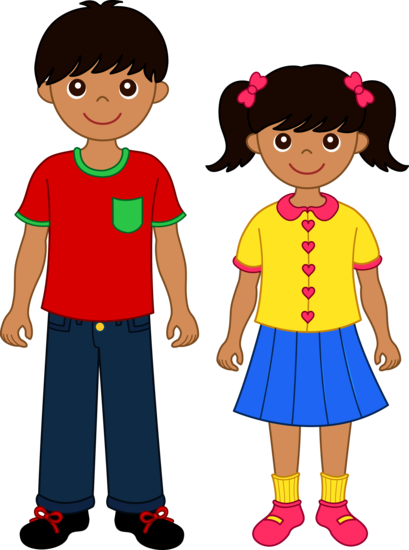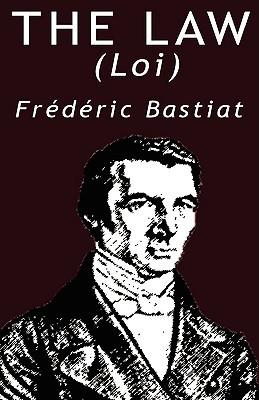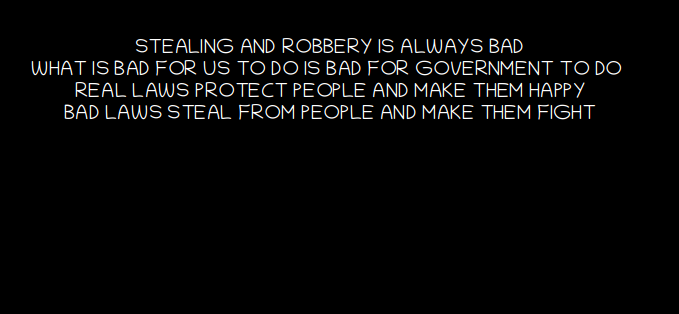Children’s story inspired by ‘The Tuttle Twins Learn About the Law’

Aditya and Nandini are siblings. They like to learn new things. They are also good friends. They love doing things together.
One day, their school teacher, Mrs. Savitri, talks with them about wisdom. Mrs. Savitri explains that a wise man is somebody who knows important things.
For homework, Aditya and Nandini are told to interview a wise man. They must ask a wise man to teach them something important. The twins immediately think about their neighbour Rajaji.
Rajaji is an old man who grew up in India. He is like a grandfather to Nandini and Aditya and often teaches them new things. The twins like to talk to him while they play in Rajaji’s garden, where he works. Rajaji knows a lot of important things. The twins ask him about everything they want to know:
Why do clouds have different shapes, why petrol makes cars work or how birds fly!

Rajaji has a reply to all their questions! He is therefore the ideal person for the interview.
After school, Aditya and Nandini leave their lunch box at home and hug their mother. They take a notebook and go to meet Rajaji. The twins knock at Rajaji’s door. Rajaji opens the door and greets them with a big smile. “How are you my little angels?”, asks Rajaji.
The twins smile – they love being called angels!
“What can I do for you today”, asks Rajaji.
‘We were taught about wisdom at school”, replies Aditya.
“We must interview a wise man”, says Nandini.
“I see”, says Rajaji, with a smile. “And you think that I can help you?”
“I hope so!”, says Nandini.
Aditya asks, “Can you help us? Our teacher told us that you must teach us something important.”
“I can try”, says Rajaji. “I think that I know what I’m going to teach you. Follow me!”
The twins hop across the door and follow Rajaji to his study room on the first floor. There is a library in Rajaji’s room, with many shelves. There are books everywhere. Rajaji really likes books.
“Sit down, kids”, says Rajaji, pointing to the sofa. “I want you to learn something very important”, he says, as he picks up a book from the shelf.
“It is something that affects everybody’s life everyday”, he says.
The twins are curious. “What is it?”, they ask.
Aditya is very intelligent and likes to understand things. He asks Rajaji if it has something to do with food, because everybody eats everyday.
Nandini, who has a good imagination, has another idea. “I bet it’s about the sun!”, she says, as she tries to guess.
“These things are important, but I have something else in mind”, says Rajaji.
“What is it?”, asks Aditya. He is even more intrigued.
Rajaji shows them the book that he has picked up from the shelf. “This”, he says. Aditya and Emile read the title of the book : ‘The Law’. They cannot easily pronounce the author’s name. His name is Frédéric Bastiat.

“My parents taught me about him when I was a child like you”, explains Rajaji. “He taught us many important things about people and government.”
The twins look at each other, surprised. “The law affects us everyday?”, asks Nandini, looking back at Rajaji.
“This is what you find important?”, asks Aditya, as he folds his hands.
“Are you sure?” he asks, as he writes the words ‘The Law’ in his notebook.
“It is very important”, says Rajaji. “And I bet that after we have finished, you will agree with me!”
“Are you sure?” he asks, as he writes the words ‘The Law’ in his notebook.
“It is very important”, says Rajaji. “And I bet that after we have finished, you will agree with me!”
They are still not convinced. Rajaji usually talks about interesting things, like sharks and space rockets.
“Our uncle is a policeman”, says Nandini. “I think that he works with the law.” “Yes of course”, says Rajaji. “When people think about the law, they think about signals on the road and criminals in jail. But it is much more than that”, he says.
“Everybody has something called rights: you, me, everybody!”, he explains.
Nandini writes in her notebook : “We have rights”.
“When we have rights, it means that there are some things that we can do and that nobody can stop us from doing”, explains Rajaji.
“Like playing with our toys?”, asks Aditya. “Yes!”, says Rajaji, “Or talking about interesting things, or playing with your friends, or going for a walk”.
“As you are still children, your parents are responsible for teaching you to use your rights”, he says.
“But not when I become a big girl!”, says Nandini, standing on her feet to show how tall she is.
“That is true”, says Rajaji. “When you grow up, nobody should stop you from using your rights. You must be responsible for yourself.”
Aditya wonders what he and Nandini will become when they grow up. What will they do with their rights?
“I know that you pray to God”, says Rajaji. “Think about it this way: God gives us life and the ability to think, learn and act.”
“God gives us the ability to understand what is good or bad”, he says.
Aditya’s eyes light up. “That is called having a conscience!”, he writes.
“Exactly, Aditya”, says Rajaji, happy to see that the twins are learning.
Aditya writes “We have a conscience” in his notebook, as Rajaji helps him to spell. Nandini writes “Our rights come from God” in her notebook.
“God gave us these rights and we have the responsibility of preserving and developing them”, says Rajaji. In a serious voice, he adds, “We must also protect these rights”.
“Because of bad people?”, asks Nandini, with her fist in the air.
“Exactly”, says Rajaji, with a smile. “As everybody wants to protect their rights and stop bad people, they form a group. We often call this group the government”, he says.
Nandini and Aditya start running around and giving each other high fives. “So the government fights bad people, right?”, asks Aditya. He imagines the government wearing a superman costume!
“Yes that is the idea, Aditya. But it is not always true”, says Rajaji. “Very often, the bad people can become the government!”.
The twins are shocked. “There are bad people in the government? How is this possible?”, asks Nandini.
“The bad people in government don’t wear masks and don’t look like goons”, says Rajaji. “They look normal and say things that a lot of people like.”, he explains.
Nandini writes in her notebook, so that she remembers : “There can be bad people in government”.
“If there are bad people, what do they do?”, asks Aditya, as they continue the interview.
“This is an important question, Aditya”, says Rajaji, as he looks by the window. “Let’s go to the garden, I will explain this to you.”

It is a beautiful afternoon. There is a gentle breeze. Aditya always likes to find new things in the garden. Nandini likes to chase butterflies and birds. Rajaji takes them to the vegetable patch where he works everyday. He grows many things such as tomatoes, bananas, capsicums and carrots.
“Do you see my tomatoes?”, asks Rajaji. “Mrs. Sharma, who lives down the street, really likes it when I give her these vegetables.”
Rajaji takes a juicy tomato and gives it to the twins. “What would you say if Mrs. Sharma took one of my tomatoes without asking me?”
“Well, that would be bad surely”, says Nandini without hesitating. Their parents always taught them that it was bad to steal.
“Wouldn’t her conscience tell her to stop?”, asks Aditya.
“Surely”, says Rajaji.
“Now imagine that Mrs. Sharma asks your uncle who is a policeman to help her steal a tomato. What would you think if your uncle stole my tomatoes and give them to Mrs. Sharma?”
Aditya thinks that this question is a trap. “That would still be bad”, he says very wisely.
“Even if the government did it for her?”, Aditya asks Nandini. “If it is bad, it is bad, no matter who does it!”, she says.
“Exactly”, says Rajaji.
Aditya writes in his notebook: “Stealing is always bad”.
“Both of you are learning something that very few people understand”, says Rajaji. “Do you remember that we all have rights?”, And that we make government to protect these rights?”
“Yes”, says Nandini, going to the window, ready to fight bad people.
“If it is bad for us to do something, then is it also bad for the government to do it”, says Rajaji.
Aditya and Nandini agree. “What is bad is bad”, says Nandini.
Rajaji’s cat Dusty comes to them and starts purring. Aditya strokes Dusty. He asks, “Do the bad people in the government steal things from you Rajaji?”
“Let’s go to the kitchen, I will explain”, says Rajaji. The twins race to the kitchen to see who reaches first. Rajaji opens the cupboard in his kitchen. There are many shelves full of food. It is like a shop!

“I keep food to help people who are hungry”, says Rajaji. Nandini likes to see the colours of the boxes in the kitchen. Aditya tries to count them.
“Sometimes I make food for my neighbours when they have lost a job or when they have a baby”, says Rajaji.
“That is very kind”, says Nandini.
“But what does this have to do with the government?”, asks Aditya.
“Well nothing really”, says Rajaji. “I help people because I want to. But the government also forces me to help people.”
“Is that really bad?”, asks Nandini. “Many people who are sick or in need need our help, right?”
“Do you remember my question about your policeman uncle”, asks Rajaji, “and how he could take my tomatoes to give them to Mrs. Sharma?”
The twins remember. “It is always bad to steal”, they say in unision.
“In the same way, the bad people in the government take what I have and give it to others without my permission”, says Rajaji. “Sometimes they take my things and keep it themselves, without giving it to the poor”.
“That is what goondas do!”, says Aditya, as he imagines Rajaji on the street, threatened by a gang of goondas.
Rajaji laughs. “Yes Aditya, goondas steal things. That is called robbery. And when the bad people in government do it, it is called legal robbery”.
“There are laws which allow bad people to rob like goondas?”, asks Nandini.
“If a law allows the government to take what I cannot take, that is not a real law”, says Rajaji.
“Real laws protect people and their things against robbery”, explains Rajaji. “When real laws are respected, people work hard to improve their life and work peacefully with others. Everybody is more happy.”
Aditya writes in his notebook: “Real laws protect people”.
Rajaji continues, “When there is no legal robbery, people can count on the goodness of others when they are in need”.
“But when the law allows the government to rob, people fight”, says Rajaji.
“Everybody tries to take more and give less. Others stop working hard and start asking the government to steal for them”, says Rajaji.
“When this happens, the government steals everything and our rights are not protected”.
“But why do few people know these things?”, asks Nandini.
“This is what wisdom is about, Nandini”, says Rajaji. “We all have things to learn. We must then practice them in our lives and teach them to others”.
“This is how wise people have always learned”, says Rajaji. “Now you must help your friends and family to learn this”.
The twins thank Rajaji and go home for dinner. It is late in the evening and they want to play with their dog.
The next morning, the teacher asks Aditya and Nandini what they learnt about wisdom.
“Can I write it on the blackboard?”, asks Aditya. “Sure”, says Mrs. Pent, “and Nandini should help you too!”
Aditya holds the chair as Nandini writes on the blackboard:

THE END
